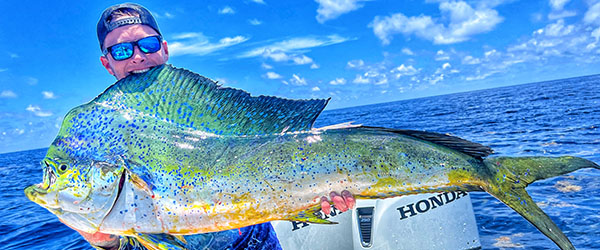The Texas Heroes Monument
What I Learned from the Henry Rosenberg Book
You’ve driven by it. You’ve probably even taken a picture of it. But do you know anything about the Texas Heroes Monument other than the name?
Growing up in Galveston, I knew the monument was important and I knew Henry Rosenberg had something to do with it. That was about it. My interest in the subject changed when I was shooting video for the Artifacts. Stories. series. I spent a lot of time at the Rosenberg Library and Museum Curator, Eleanor Barton, showed me a book titled Henry Rosenberg 1824-1893. Shortly after, I scored a copy of the book on eBay for $24.
When Henry Rosenberg died in May of 1893, his last will and testament was made public. To the great surprise of local residents, Mr. Rosenberg left the bulk of his sizable estate to fund various charitable projects around the city. Among these “Gifts of Henry Rosenberg” were the construction of a library, an orphanage, a church, public drinking fountains for both people and animals, and a monument honoring veterans of the Texas Revolution.
Today, that monument is known as the Texas Heroes Monument and most of what I know about it came from that book I bought on eBay. Below is what I learned along with some photos I took after Robert Alden Marshall restored the monument in 2016.

| Lady Victory being raised on the monument | Photo Courtesy of Rosenberg Library |
In the will of Henry Rosenberg, clause 19 reads,
“I give fifty thousand dollars for the erection of an appropriate monument in the city of Galveston to the memory of the heroes of the Texas revolution of 1836. The execution of this bequest is charged upon my executors, who will adopt plans and have the monument erected under their immediate supervision.” (Rosenberg, Henry. Henry Rosenberg 1824-1893. Galveston, Texas: Rosenberg Library, 1918. Print)

| Unveiling of the Texas Heroes Monument April 21, 1900 | Photo Courtesy of Rosenberg Library |
The monument to the Heroes of the Texas Revolution of 1836 was unveiled with ceremonies of state-wide interest on April 21, 1900, the sixty-fourth anniversary of the battle of San Jacinto.
The original invitation for the unveiling of the monument read:
“Sidney Sherman Chapter
Daughters of the Republic of Texas”
“On San Jacinto Day, April 21, 1900, the Monument will be unveiled which was presented by the great philanthropist, Henry Rosenberg, to the State of Texas, a memorial to the Heroes of the Texas Revolution. This Monument is the result of a bequest of fifty thousand dollars, left by Mr. Rosenberg for this purpose, the execution of which has been under the wise direction of his executor, Major A.J. Walker, of Galveston, who has done so much toward the successful realization of Mr. Rosenberg’s charities and benefactions to the City of Galveston. The bronze statuary for the completion of this splendid testimonial to the valor, honor, courage and patriotism of the founders and defenders of the Republic of Texas was all cast in Rome and was designed by Prof. Amateis of Washington, D.C., one of the noted sculptors of this country. In his symbolic design he achieved a success that is satisfying and gratifying to every patriotic Texan, and it is the earnest desire of the citizens of Galveston and of Sidney Sherman Chapter, Daughters of the Republic of Texas, that the people of Texas will come to Galveston at the time to pay homage to this great occasion in the history of our State.” (Rosenberg, Henry. Henry Rosenberg 1824-1893. Galveston, Texas: Rosenberg Library, 1918. Print)

| Louis Amateis, Sculptor | Photo Courtesy of Rosenberg Library |

| Louis Amateis Inscription |
Sculptor Louis Amateis
Sculptor Louis Amateis was born in 1855 in Turin, Italy. He immigrated to New York City in 1883, and eventually made his way to Washington D.C. where he founded what is now George Washington University. Five different sculptures erected and on display in Galveston were created by Louis Amateis. His works include: A Monument to the Heroes of the Texas Revolution, a Statue of Henry Rosenberg, A Monument over the Grave of Major General John Bankhead Magruder, a monument to the Confederate Soldiers of the Civil War, and the bust of Major A.J. Walker, executor of the Rosenberg estate. Other works on Galveston Island but not on display at Rosenberg Library include “Mother Love,” a bas-relief sculpture in plaster; “The Confederate Flag,” which is a photograph of a clay model for the Confederate Heroes Monument.

Design
There are four sides to the monument, each pointing in a different cardinal direction and depicting moral qualities of the men who fought for Texas: Patriotism, Honor, Devotion, and Courage. The monument is 74 feet tall, including Lady Victory, and the base is 34 feet square. The bulk of the monument is the four columns standing fifty feet tall. Carved from a single block of granite, it weighs twelve tons. The monument is constructed of granite with bronze statues seated at the base. The sub-base is adorned with bronze reliefs measuring nine feet long and three feet tall. The statues and bas-reliefs tell the story of Texas’s fight for independence. The granite used for this monument is from Concord, New Hampshire, and is the same material used in the Library of Congress.
Explore the Ocean's Depths
Explore the Ocean's Depths

| Lady Victory, atop The Texas Heroes Monument |
Lady Victory
At the top of the monument stands Lady Victory at 22 feet tall. When she was cast, Victory was the second largest bronze sculpture in America, second to William Penn at thirty-seven feet on top of Philadelphia’s City Hall. Lady Victory stands proud looking north across the State of Texas towards the battlefield of San Jacinto. Victory is holding a sheathed cross hilted sword pointing toward the earth, entwined with roses, in her left hand. The symbolism of the roses and sword define the beginning of an era of peace taken from German poetry. In Victory’s right hand is a crown of laurels for the heroes of the war. Under Lady Victory’s feet is the date October 2, 1835, the date of the Outbreak of Hostilities.

| Stephen F. Austin flanked by War & Diplomacy |
Devotion
The base of the column has a medallion of Stephen F. Austin, known as the Father of Texas. Austin is flanked by allegorical figures representative of war and diplomacy. Below the medallion is a bas-relief commemorating “The Defense of the Alamo.”
“The defense of the Alamo is shown at the moment the attacking Mexican column has broken its way through the shattered door of the bullet-pitted mission. Through the splinter-strewn gateway the soldiers of Santa Anna are rushing, the handful of wounded and exhausted Texans engaging them hand to hand. Some of the gallant group, notwithstanding the entry of the Mexicans, still hold their posts at the windows, firing into the thick of the ranks outside, where their last few bullets will do the greatest execution. Bowie lies wounded on a couch in a corner braced on one elbow, weapon in hand, to meet the last onslaught. About him crouch three women, one holding a baby close to her chest.” (Rosenberg, Henry. Henry Rosenberg 1824-1893. Galveston, Texas: Rosenberg Library, 1918. Print)

| “The Defense of the Alamo” |
Trollbeads Bracelets
We'll Get You Hooked Up!

| Lady Defiance |
Courage
The column facing east is symbolic of the revolt of Texas colonists and the beginning of the revolution. Atop the column, the word “courage” is inscribed. Seated at the base of the granite column is the bronze figure known as Defiance. Armor clad and bearing an unsheathed sword in her right hand, Defiance is draped with the pelt of a lioness over her head and shoulders. Apparent as the Lone Star on her chest is her uncompromising demeanor evident as she orders the Mexicans out of Texas territory. Beneath Defiance, the date October 2, 1835 is carved, significant as the day of the Goliad Massacre or the outbreak of hostilities. “The Massacre at Goliad” is referenced in the bas-relief on the base of the monument.
“The Massacre at Goliad is a scene equally vivid. The Texas prisoners, promised the honors of war before they surrendered, were marched out of town between two columns of Mexican soldiers. Their freedom had been promised if they gave up their arms. The sculptor has shown a moment when one of the Mexican columns fell back and Santa Anna’s troops poured a volley of lead into the group of unarmed Texans. One broad-shouldered Texan stands out in the foreground, every line of his tautened muscles radiating the contempt he is hurling at the Mexican troops.” (Rosenberg, Henry. Henry Rosenberg 1824-1893. Galveston, Texas: Rosenberg Library, 1918. Print)

| “The Massacre at Goliad” |
Trollbeads Bracelets
Relax, Unwind, and Enjoy Luxury

| Sam Houston Flanked by War & Diplomacy |
Patriotism
The column that faces north overlooks what was once the entrance to Galveston Island, and the State of Texas. The top of the column is inscribed with the word “patriotism.” A bronze medallion of Sam Houston is flanked by representations of war on his right and diplomacy on his left, and backed by a flag. The sub-base of the monument is a bas-relief of “The charge of Sam Houston’s troops that won the Battle of San Jacinto.” The inscription under the relief on the base reads, “A tribute from Henry Rosenberg to the heroes of the Texas Revolution of 1836.”
“No less magnificent in conception and execution is the panel of the battle of San Jacinto. The charge of Sam Houston’s fighters, the climax of historic struggle, is shown with a prodigality of detail that is tense in action. Leading his men is General Houston on horseback, waving his hat at the moment he has shouted back: “Hold your damned fire!” With the concentrated ferocity inspired by the battle-cry of “Remember the Alamo!” the Texans are leaping the trenches and sweeping like a death-laden hurricane upon the Mexican ranks. In the foreground Deaf Smith, his horse shot beneath him, is rushing forward with pistol leveled at a Mexican officer. Just behind Sam Houston, General Sherman is leading the Texas cavalry. Swept from their feet by the furious charge, the Mexicans are at a point of breaking ranks and fleeing in disorganized retreat.” (Rosenberg, Henry. Henry Rosenberg 1824-1893. Galveston, Texas: Rosenberg Library, 1918. Print)

| “The Charge of Sam Houston’s Troops that won the Battle of San Jacinto” |
Relax, Unwind, and Enjoy Luxury
Experience a Fishing Adventure!

| Lady Peace |
Honor
Magnificent and suggestive of the end of Texas’s hostilities is the bronze figure known as Peace. Lady Peace is seated facing west. With her right arm resting on the State of Texas’s coat of arms, she sits stately with her sheathed sword across her lap, loosely held in her left hand. Crowned with a laurel wreath, she wears a Lone Star proudly as she gazes westward. Below her is the date April 21, 1836 the date of the Battle of San Jacinto. A bas-relief underneath the date commemorates “Santa Anna before General Houston at San Jacinto.”
“Last of the series, the fourth panel depicts the scene after the surrender, with Santa Anna before General Houston at San Jacinto. The scene has been made familiar by many prints. General Houston, wounded and surrounded by his men, is reclining beneath the live-oak tree. Santa Anna, disguised as a common Mexican soldier, is being led forward toward the blanket on which the future President of the Republic of Texas rests. Wonderfully the sculptor has captured the spirit of the moment.” (Rosenberg, Henry. Henry Rosenberg 1824-1893. Galveston, Texas: Rosenberg Library, 1918. Print)

| “Santa Anna before General Houston at San Jacinto” |
Eco-Art Kayak Adventure
We'll Get You Hooked Up!
Subbase
The subbase of the monument is wrapped with medallions portraying the individuals who fought for Texas Independence. If there were no known portraits at the time the monument was erected, then only the names were displayed.

| Medallions on the north side of the monument |
North Side of Monument:
Medallions representing the most prominent individuals in the struggle for Texas independence:
- Thomas J. Rusk (First Secretary of War, Republic of Texas & General at Battle of San Jacinto)
- Mirabeau B. Lamar (Second President of the Republic of Texas)
- Henry Smith (First American Governor of Texas)
- James Bowie (Colonel Texian Volunteer Army)
- Sidney Sherman (General Texas Army)

| Medallions on the south side of the monument |
South Side of Monument:
Medallions representing the most prominent individuals in the struggle for Texas independence:
- James W. Fannin (Colonel Texas Army)
- James Butler Bonham (Major, Republic of Texas Army)
- David G. Burnet (President of Texas Interim)
- Benjamin R. Milam (Colonel Mexican Army)
- Edward Burleson (Third Vice President Republic of Texas)

| Names on the east side of the monument |
East Side of Monument:
Engraved on the frieze are the names of heroes who did not have known authentic portraits at the time:
- Francis W. Johnson (Co Commander of the Texian Army)
- Erastus “Deaf” Smith (Spy with Texas Army & Commanded Texas Rangers)
- William B Travis (Lieutenant Colonel with Legion of Cavalry, and Consul from the United States)
- David Crockett (Congressman, King of the Wild Frontier)

| Names on the west side of the monument |
West Side of Monument:
Engraved on the frieze are the names of heroes who did not have known authentic portraits at the time:
- James C. Neill (Lieutenant Colonel, fired the first shot of the Texas Revolution),
- George W. Hockley (Colonel, Secretary of War for Republic of Texas),
- Henry Karnes (Colonel, Commander of General Sam Houston’s “Spy Squad”)
- Lorenzo de Zavala (Interim Vice President of the Republic of Texas)
Trollbeads Bracelets
Relax, Unwind, and Enjoy Luxury

| Texas Heroes Monument Square |
Texas Heroes Monument Square
Across from the Monument on the south east corner of Rosenberg (25th) and Broadway is the Texas Heroes Monument Square. Dedicated on August 31, 2000, Monument Square was a gift from the Doyle family owners of Texas First Bank. Monument Square features a bronze sculpture of Texas First Bank’s Charles T. Doyle who is the Founder and Chairman of the Board of Texas First Bank. As a true Texan Mr. Doyle is portrayed with his cowboy hat off showing respect to the men who fought for Texas’s independence.
There are six flags flying over monument square. These flags represent the six nations that have claimed sovereignty over Texas: Spain is the first nation to claim sovereignty over Texas; France attempted to move west with explorer Robert de La Salle; Mexico, after gaining independence from Spain, seized control of Texas; The Republic of Texas, which is represented with the current Lone Star Flag; after gaining independence from Mexico in 1845, Texas became the 28th state to join the union and began to fly the flag for the United States of America. In 1861, Texas declared secession from the union and established their own government, which became known as the Confederate States of America.

| Historical Marker at the Texas Heroes Monument Square |
If you want to learn more, visit our Gifts of Henry Rosenberg section. We also have over 200 historical markers plotted on a map. I took all of those photos! Visiting some of these places make for a great self-guided tour. I hope you enjoy learning about Galveston’s history.
Christopher Aleman
Christopher Aleman was born and grew up on the island and is married with three boys. He can offer many insider tips and is considered an island expert on what is free!











